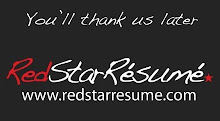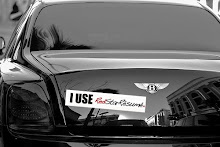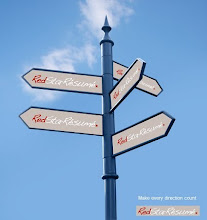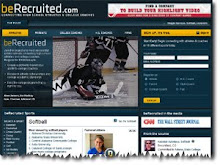Sunday, May 23, 2010
Monday, May 17, 2010
Top 50 most Annoying Co-Workers

The jury has spoken!
Top 50 most Annoying Co-Workers:
The loud talkers,
The coughers
The Eavesdropper
The Gloaters,
The Gossipers,
The Open Mouth Chewer
The Blame Shifter
The Cubicle Ninja
The procrastinator
The Rude co-worker
The corporate survivor,
The “know it all”
The smart A**
The narcissistic type
The non-confrontational type
The rat type
The “ear-bleeding sports fanatic”
The “I’m-always-right-and-you’re-always-wrong person”
The “I work 7.5 workday and don’t do more than is required”
The floater
The sighers,
The “Always running late” co-worker
The Sapper of productiivity / energy levels
The Incompetent
The Judgmental co-worker
The Negative co-worker
The Complainer
The Sneaky co-worker
The Person whose non-work-related conversation is restricted to sports.
The Blame shifter.
The Illiterate Ignoramous.
The Doofus/ Dumbass.
The Super Suit.
The butt kisser
The Too Sensitive
The “Aw-shucks” manipulator.
The motivational speaker.
The gum popper
The throat clearer
The know-it-all
The Grinch
The 3 sneezer
The Micromanager
The office bully
The Pessimist
The “Mr. Popular” Co-worker
The Participator of illegal activities
The “monopolizer of meetings”
The “Put up posters all over the office” person
The Passive-aggressive
© RedStarResume Publications – www.redstarresume.com
Sunday, May 16, 2010
Intern, Travel, Volunteer – What are the best ways for students to spend their summers?

• Internship:
Internships provide opportunities for students to gain experience in their chosen fields, determine if they have an interest in a particular career, create a network of contacts, or earn school credit. Although you may feel that graduation is still a long way off, if you can gain experience in your chosen area, you will help to reduce the challenge of interviewing post-graduation without any real work experience. Remember there are at least 3 summers as a college student. If you can make use of at least one of them it will put you in a good position when your time comes to graduate.
• Travelling:
Travel and experience the world! Broaden your mind and experience different cultures and traditions. From the beaches of Australia to the jungles of Brazil, the memories you gain while travelling are priceless and you just never know who you’re going to meet along the way. Go see the world while you can – you have the rest of your life to work!
• Volunteering:
Volunteer your time for free. This could include working for free for a company related to your field of interest or sacrificing your time to help others (there’s no better feeling than helping those less fortunate than ourselves). In the long-term, volunteering looks great on your resume, and it could open doors for future opportunity. Remember to network. This is by far the most important advice to give a student.
• Combine travelling and working:
Find a job or internship in a foreign country. Perhaps learn a new language. You never know the opportunities that can present themselves.
• Spend time with your family and friends
• Get some exercise, stay healthy and active!
Whatever you decide, just make sure you have fun and enjoy yourself.
© RedStarResume Publications
Follow us on Twitter: http://twitter.com/RedStarResume
To view all “Tips from the Pros” Check out our website www.redstarresume.com
Tuesday, May 4, 2010
Top 5 Cover Letter Mistakes

If you’re going to take the extra time to write a cover letter that you include along with your resume, you might as well write it properly! We talked to a few recruiters and found out that they frequently find mistakes so annoying that cause them to immediately discard some applications all together. Here’s a sample of some of the mistakes they mentioned:
Letter addressed to the wrong person or company: It doesn’t annoy hiring managers that you’re probably applying for other jobs, but it does annoy them when you don’t take the time to check that your cover letter is addressed properly. Sending it to the wrong person or company will get your application deleted immediately.
Spelling and/or grammar mistakes: You’re probably tired of being told to check and re-check your work, but it is extremely important! When spelling or grammar errors show up on your cover letter, the person reading it is going to think that you either don’t know how to write properly or that you didn’t bother to check it over. Either way, it’s bad news for you.
It’s too long: Cover letters should be short and to the point. They should provide some basic information about how you are specifically qualified for the job in question. That’s pretty much it. Anything longer than a few paragraphs starts to look more like an essay, and it’s an immediate turn-off.
No contact details: It happens quite frequently – people forget to include their name, let alone a way to contact them. While your details may be on your resume, no one wants to take extra time to fish for information that should have been provided for them right away.
No cover letter: This is the worst mistake of all. You’re competing against dozens of other applicants who have instantly shown that they took more time to apply than you.
At the end of the day, you just want to give yourself the best chance possible to be called for an interview. Think about what a potential employer wants to know most about you, and try to convert this into a cover letter.
© RedStarResume Publications
Follow us on Twitter: http://twitter.com/RedStarResume
To view all “Tips from the Pros” Check out our website www.redstarresume.com
Sunday, May 2, 2010
When Is The Best Time to Apply For Online Jobs?

The job application process is no doubt tedious and tiring for everyone. We've all been there - sifting through the various job ad postings, sending through resume after resume, and all we want to do is get the application process over with as fast as possible. Everyone tells you to at least take a few minutes to tailor your resume and cover letter to each job you apply for.
Personalizing your application materials no doubt increases your chances of getting a call back, but I'm also going to let you know that there is another way to increase your chances at getting that interview call, and it has absolutely nothing to do with who you are or with the quality of your resume and cover letter - it simply has to do with when you send through your materials.
I recently had a friend complain to me about getting no call backs at all. She had sent through personalized resumes and cover letters dozens of times and had not received one interview invitation. Sure, the job market is extremely tough in some areas at the moment, but to receive zero phone calls out of dozens was a bit alarming to me.
I asked her to show me her resume, and everything looked great. She told me about the sites she was applying through, and I saw no problem with that either. But she then told me about the application process itself, and this is where an important detail stood out - the time she was sending through her resumes.
Many job seekers, especially the already employed, use nights and weekends to send out the bulk of their applications, and this can sometimes put them at an immediate disadvantage. Anyone who's worked in an office environment knows that Mondays are usually extremely hectic. Everyone's trying to catch up on their emails and phone calls, and there usually isn't a lot of time to spare, especially on things that are not urgent, like reading resumes. The first thing most people do when reading emails is prioritize and figure out what needs to get done sooner rather than later - resumes, especially ones sent days ago, usually fall into the "later" pile.
The point is that you want to be sure that your resume and cover letter are noticed. Sending them through on the weekend not only puts your email toward the back of the line chronologically, but it also puts it among the spam messages that have filled up the inbox, and you don't want to accidentally get deleted.
Ideally, try to respond to job advertisements during the day, when someone is most likely to see it, let alone read it. If your only time to apply for jobs is on the weekend, at least try to send through your cover letters and resumes toward the later part of the weekend, preferably on Sunday evenings. You want your resume and cover letter to be one of the first things the hiring manager sees, not something that they see toward the bottom of their inbox that they will "get to later."
© RedStarResume Publications – www.redstarresume.com
Laura is the Marketing Coordinator for RedStarResume, a business that provides resume and cover letter writing services for students, graduates and young professionals.
http://www.redstarresume.com
Follow us on Twitter: http://twitter.com/RedStarResume
Subscribe to:
Posts (Atom)










